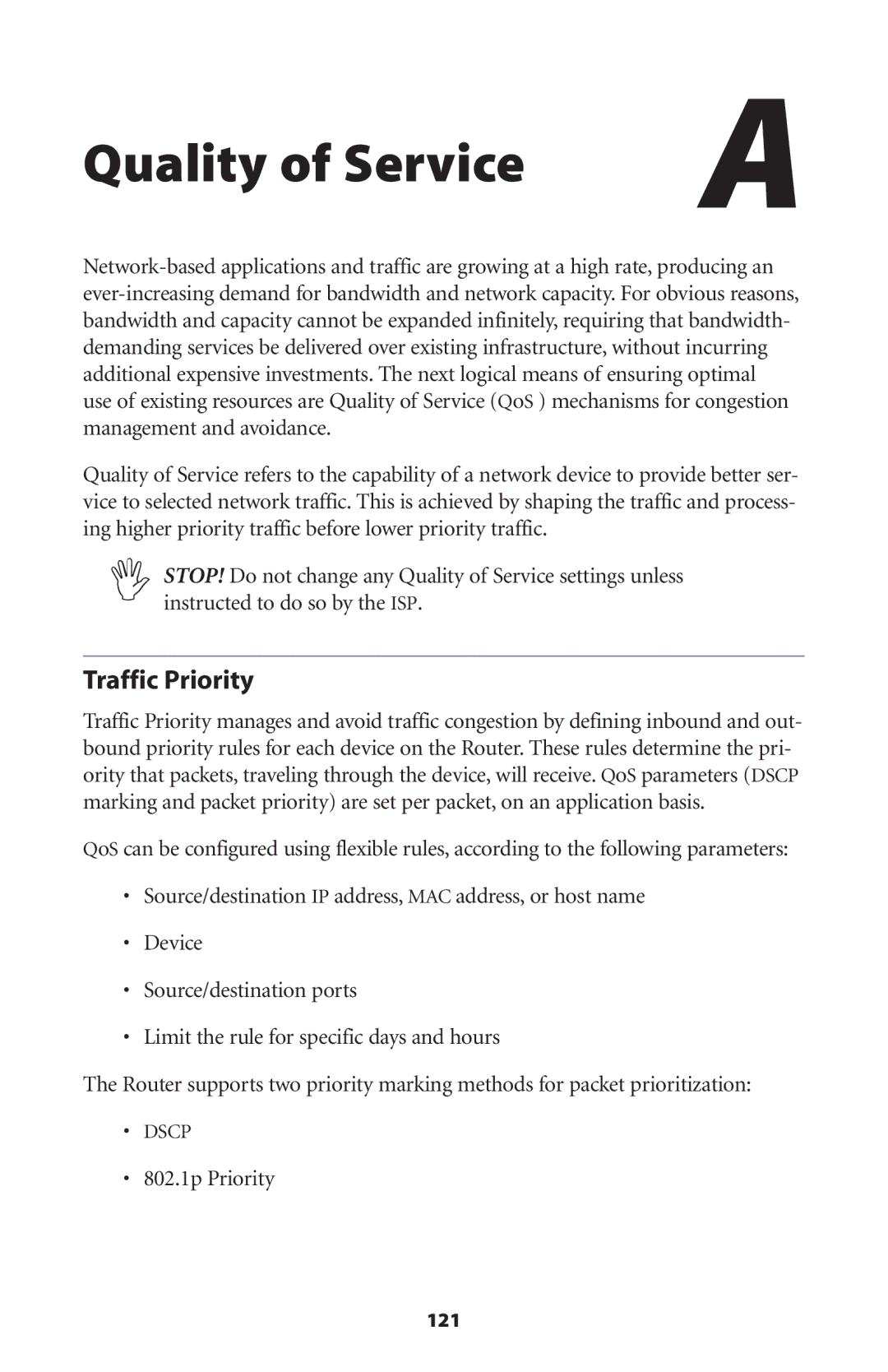Quality of Service | A |
|
Quality of Service refers to the capability of a network device to provide better ser- vice to selected network traffic. This is achieved by shaping the traffic and process- ing higher priority traffic before lower priority traffic.
ISTOP! Do not change any Quality of Service settings unless instructed to do so by the ISP.
Traffic Priority
Traffic Priority manages and avoid traffic congestion by defining inbound and out- bound priority rules for each device on the Router. These rules determine the pri- ority that packets, traveling through the device, will receive. QoS parameters (DSCP marking and packet priority) are set per packet, on an application basis.
QoS can be configured using flexible rules, according to the following parameters:
•Source/destination IP address, MAC address, or host name
•Device
•Source/destination ports
•Limit the rule for specific days and hours
The Router supports two priority marking methods for packet prioritization:
•DSCP
